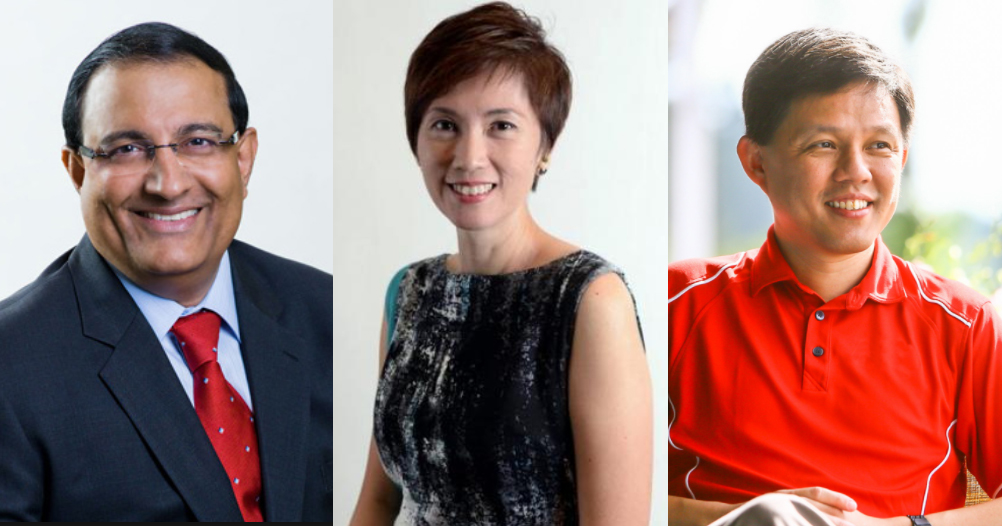On April 24, Prime Minister Lee Hsien Loong announced the Cabinet reshuffle for 2018.
Cabinet reshuffles are a significant step in building the new team for the government and in exposing the next generation of leaders to different portfolios.
Having plenty of new ministers in each ministry or in key appointments would mean that changes are extensive and radical. Changes in key appointments will also signal the key players within the fourth generation leadership.
We put this year's reshuffle into perspective by placing it in contrast to other years:
2011
The Cabinet reshuffle came after a watershed election where PAP lost a GRC, Aljunied GRC, for the first time.
George Yeo announced that he was leaving politics after his team lost in the General Elections. His position as Foreign Minister was succeeded by K. Shanmugam.
After the elections, PM Lee also acknowledged that many hoped for the government to "adopt a different style and approach," and 2011 saw a major reshuffle with key figures leaving the Cabinet.
These were the major changes during the reshuffle:
- 11 ministries out of 14 had new ministers in charge
- Tharman Shanmugaratnam was promoted to DPM
- MM Lee Kuan Yew and SM Goh Chok Tong left the Cabinet
- They decided that they should step down to give the PM a clean slate in moving ahead with the next generation of leaders
- Heng Swee Keat became Minister of Education, and it marked the second time that a new Member of Parliament made it to Cabinet immediately after the elections
- Chan Chun Sing became Acting Minister for MCYS and Minister of State in MICA
2015
2015 saw somewhat large changes with nine of out 15 ministries having new ministers in charge.
- Nine of out 15 ministries had new ministers in charge
- This included Vivian Balakrishnan as Minister for Foreign Affairs, Heng Swee Keat as Minister of Finance, Shanmugam as Minister for Home Affairs and Khaw Boon Wan as Minister for Transport
- For the first time, the Ministry of Education was helmed by two new Acting Ministers, Ng Chee Meng and Ong Ye Kung
- Lui Tuck Yew, Minister for Transport, retired
- Chan Chun Sing was appointed the Deputy Chairman for People's Association and retained his role as Secretary General of NTUC and Minister in PMO
2018
This year, the cabinet reshuffle has been of particular interest as people are watching out for any hints as to who might be a frontrunner within the fourth generation leadership.
It is still unclear though, given that there are no new DPMs in the Cabinet reshuffle.
As compared to past years, only three ministries will have new ministers in charge (excluding the Prime Minister's Office) this year.
[related_story]
These are the key changes for 2018:
- Three ministries will have new ministers in charge
- They are: Chan Chun Sing appointed as Minister for Trade and Industry, Josephine Teo as Minister for Manpower, and S Iswaran as Minister for Communications and Information
- For the Prime Minister's Office, there are two new appointed Ministers: Indranee Rajah and Ng Chee Meng
- Three Ministers, Lim Hng Kiang, Lim Swee Say and Yaacob Ibrahim, will retire from Cabinet, but continue as Members of Parliament
- Heng Swee Keat will take over responsibility for assisting the Prime Minister on National Research Foundation matters from DPM Teo Chee Hean
- Ong Ye Kung will continue in the Ministry of Education, designated as Minister for Education, and he will be responsible for the whole Ministry
PM Lee has promised a reshuffle that involves almost all the ministries this year.
However, it was predicted that the cabinet reshuffle is "unlikely to be extensive as many assume."
Top photo via PMO website
If you like what you read, follow us on Facebook, Instagram, Twitter and Telegram to get the latest updates.
